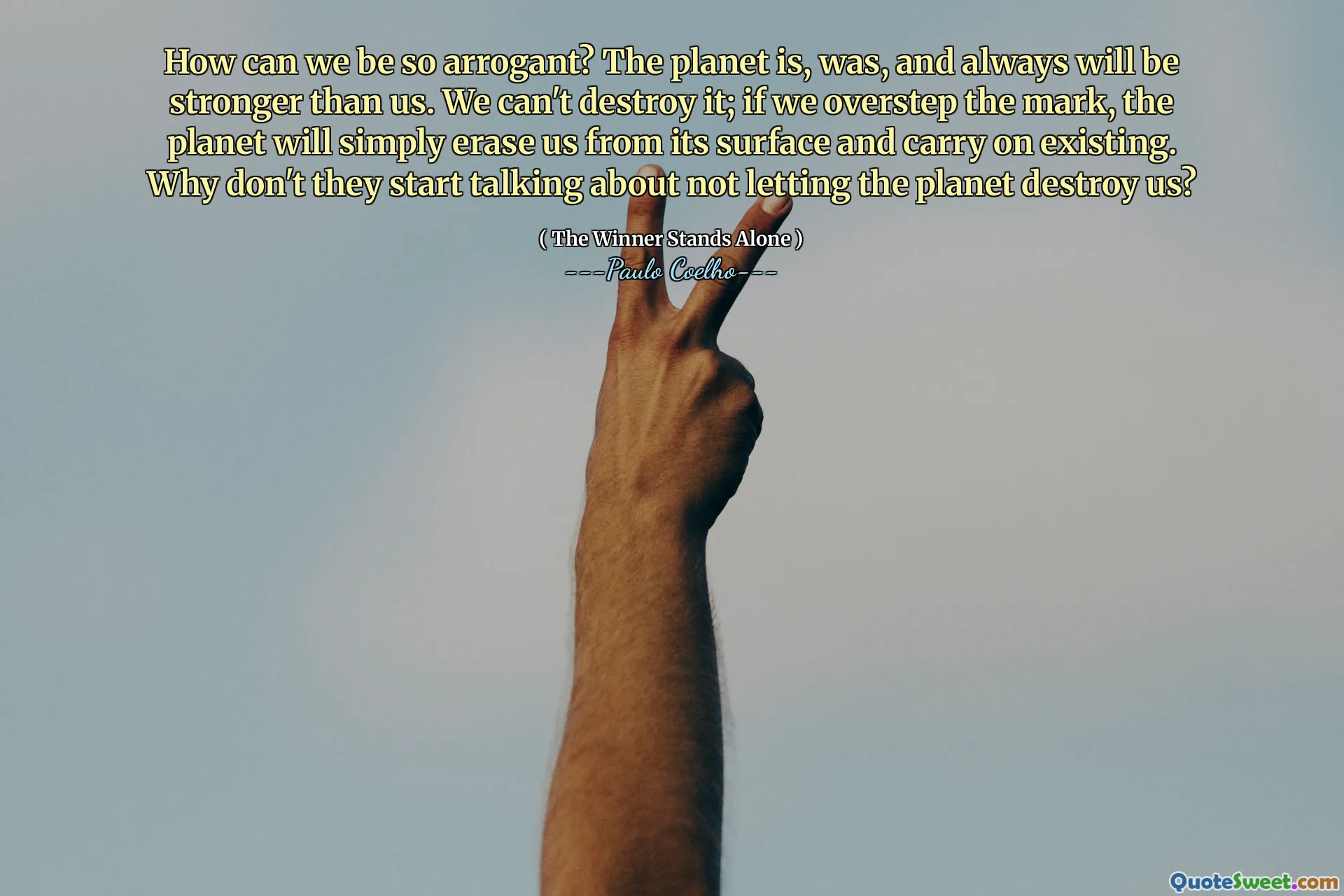
How can we be so arrogant? The planet is, was, and always will be stronger than us. We can't destroy it; if we overstep the mark, the planet will simply erase us from its surface and carry on existing. Why don't they start talking about not letting the planet destroy us?
This quote eloquently challenges our species' persistent arrogance regarding our relationship with nature. It serves as a sobering reminder of the Earth's enduring resilience and our transient existence against the vast backdrop of planetary time. The notion that the planet 'is, was, and always will be stronger than us' highlights the hubris in assuming that humanity's dominion is absolute or without consequence. Instead of framing humanity as the earth’s conqueror, the quote reframes us as temporary guests who risk extinction if our actions push too far.
The idea that the Earth will ‘simply erase us from its surface’ if we ‘overstep the mark’ is a powerful metaphor for natural disasters, climate change, and ecological collapse—phenomena that humankind cannot control indefinitely. It subtly critiques contemporary discourse focused too heavily on how humans might 'save the planet' rather than addressing the equally important reality of how we might prevent the planet—through natural mechanisms or catastrophic feedbacks—from unmaking us.
There is an urgent call underlying the words: to alter our perspective from one of defiance to humility. Our survival is interwoven with the health of our environment. By ignoring this, we risk placing ourselves against an inexorable force far beyond human control. This quote, from "The Winner Stands Alone" by ---Paulo Coelho---, aligns with broader environmental ethics that stress coexistence, respect for natural limits, and the need for sustainable living.
In sum, the quote challenges us to confront uncomfortable truths about human arrogance, inspiring reflection on our place within the Earth's enduring story, and emphasizing survival through harmony rather than dominion.






